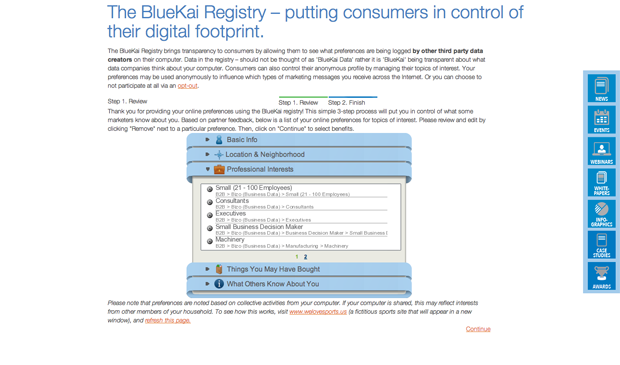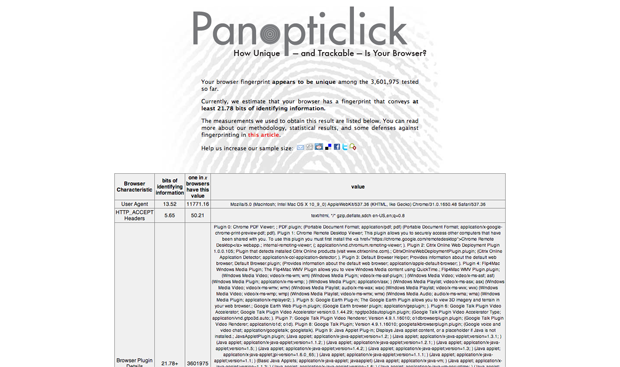In “The End of Third-party Cookies Should Not Hurt Retailers,” we addressed how third-party cookies affect privacy and ecommerce. After reading that article, I reviewed privacy issues and what other companies do to aggregate consumer data. I discovered some interesting tools that consumers and businesses should be aware of. As consumers, we will likely see more opportunities to opt out of online activities that collect data about our behaviors. We could also see more tools that allow consumers to provide more accurate information.
The Drive to Personalize
Most every ecommerce merchant uses data to personalize shoppers’ experiences. Some common personalization tactics are:
- Target emails at selected consumers who are more likely to buy a certain product;
- Retarget shoppers who have visited a store but did not make a purchase;
- Segment and personalize merchandising offers in your online store.
- Present upsell and cross-sell offers.
Online merchants use first-party information from their own databases and cookies to track shopping behaviors. They also purchase third-party databases that help predict behavior and products that will appeal to a specific target shopper. Similar methods have been used with offline direct marketing for years. Online tools like third-party cookies — i.e. cookies left by a domain other than the one a user is visiting — and deep data mining have made the practice easier.
When used properly with ad networks and ecommerce personalization and recommendation engines, third-party databases increase conversion rates and average order values. They also increase customer loyalty by providing a better customer experience.
To determine what types of data are available and how you might choose the best data source for your business, consider the downloadable BlueKai Little Blue Book. It’s an excellent resource to learn about available data for marketing purposes. BlueKai and companies like it assess your website traffic and make recommendations on databases that are likely to help you grow your business. BlueKai’s partners include data providers like Axciom, Experian, Alliant, Datalogics, comScore, and others.
The book contains information on how those companies collect data and what they think they know about you. In fact, they support the BlueKai Registry, which allows consumers to see what activity is being logged on their computers and other devices by third-party data creators. The companies also provide a means to opt out of data collection.
Because I research so many types of websites, as a journalist, most of the data about me in BlueKai Registry was inaccurate. For example, I may visit a women’s clothing site to research an article, but I have no interest in purchasing women’s clothing. But, my wife’s profiles are reasonably accurate.
Here’s a sampling of what anyone could find at BlueKai Registry. I found the tab about “What others know about you” the most interesting. In my case, there are more than 20 different databases with information about me. You can opt out of any of them as you review the BlueKai Registry.

The BlueKai Registry provides transparency about data collected about you by various data providers.
Data Collection
Most of the data is now collected with third-party cookies or other means that consumers have opted into, even if they did not necessarily think of it that way. Every time you agree to a license agreement, for example, it’s likely that you are agreeing to share your data in aggregate and anonymously with third parties. Most companies put that in their agreements to protect themselves in the future, regardless of whether they collect the data now.
If third-party cookies are eventually eliminated, there will likely be some type of replacement system that will provide similar functionality. In fact, there’s already a scarier method of tracking consumer behaviors — using digital fingerprinting techniques that profile your computer.
This technique is virtually impossible to block as other devices can see things like your operating system, browser type, your fonts, screen size and depth, time zone, cookie settings, browser plugins, and http header information. The good news is that the use of fingerprinting is relatively small. But, some observers believe this will be a future alternative to third-party cookies.
The website Panopticlick provides a browser test you can run to see what your computer’s fingerprint looks like. It will tell you how unique your computer is and what the likelihood is that a third-party could identify you individually. In my case, my browser fingerprint is unique among the 3 million tested so far. On the other hand, someone using this technique would need more information to identify me individually. There is a more in-depth Panopticlick article that gets into regression, statistics, and additional details.
Tools for Consumers
Axciom, one of the larger data providers, is now offering a tool at AboutTheData.com that allows consumers to see information that Axciom has collected about them and actually correct it if they choose. The bad news is that you have to provide Axciom with even more information than it already has to view the information it has on file. However, you can also choose to opt out of its databases.
You will need to create a login and answer a series of questions to verify your identity. Once that is done, you can review your data, which is broken into several categories.
In my case, Axciom had mangled the vehicles that I own in its “Household Vehicle Data” category. I decided to correct the data to prevent a heavy dose of improper targeted messaging to me.
You may be surprised by the amount of information Axciom maintains. Realize that this is just one of many databases that have information about you that is used in online and offline applications.
As a marketing professional, I realize the power of data in ecommerce to personalize a shopper’s experience. As a consumer, I am wary of how much information companies know about me. I am less worried about what they know about me in general. In fact, I would prefer that companies present me with information and products I care about versus things I don’t.






